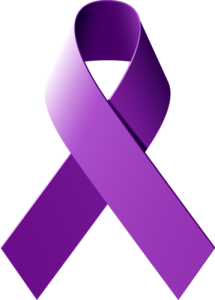Divorce can be a scary and complicated process to go through. Once your divorce is final, when is it the right time to begin dating? I am a divorce mother of a special needs child. Here are three things I did after my divorce to help me to begin dating.
1. SEEK COUNSELNG.
Going through a divorce can be an emotional roller coaster. It is important for you to talk with someone to help you with deal with your feelings|. You want to be able to deal with any anger or hostility toward your ex-spouse before you will be able to move on with your life. The last thing you want to do is to bring old baggage to a new relationship. Counseling gave me insight on how I wanted to move forward with my life as a single parent.
2. GET TO KNOW YOURSELF AGAIN.
Being a wife and mother for so many years, I lost sight of the person that I once was. I forgot the little things that I like to do and all the things I liked about myself, so I begin to take myself out on dates. I went out to the movies and dinner. I had to learn how to be happy by myself. I also kept a daily journal. Although I didn’t write in it every day, it helped me with writing down my thoughts and feeling on what was going on in my life. I love looking back on it to see how far I have come.
3. BEGIN TO DATE AGAIN.
It’s Scary!! Dating has changed since I was single. Most of my friends are married so I had to find ways to meet new people. It was important for me to get myself back out into the world, so I could begin to find that special person. Singles group at church or online dating is a great way to get your feet wet.
Have fun dating. You should take the first few dates getting to know the person. Don’t go into it trying to make a love connection, just relax and enjoy yourself.
If you feel stuck on how to move forward with your life, we are here to support you on your journey re-discovering and loving yourself .
Dione Simmons, MA, LPC-Intern
Supervised by Brent Wolfskill, MA, LPC-S, SAP, LCDC, ADC
Transitions Counseling offers flexible scheduling hours to meet most client needs and budget.
Contact us today at 817-680-9218
 Every nine seconds in the United States a woman is assaulted or beaten. In the United States, an average of 20 people are physically abused by intimate partners every minute. This equates to more than 10 million abuse victims annually (NCADV 2015). October is Domestic Violence (DV) Awareness Month. For victims of domestic violence this awareness is not just a once month out of the year occurrence. It is an hour by hour, day by day, week by week & month by month occurrence. For some, domestic violence is the “norm” of life. Their lives have never been void of some type of abuse. Many victims of DV are in a cycle of generational physical, emotional, verbal or sexual abuse. The great news is this cycle can be broken with assistance from domestic violence organizations, counseling, family, friends & other resources. With help, a person can transition from domestic violence victim to a survivor of domestic violence.
Every nine seconds in the United States a woman is assaulted or beaten. In the United States, an average of 20 people are physically abused by intimate partners every minute. This equates to more than 10 million abuse victims annually (NCADV 2015). October is Domestic Violence (DV) Awareness Month. For victims of domestic violence this awareness is not just a once month out of the year occurrence. It is an hour by hour, day by day, week by week & month by month occurrence. For some, domestic violence is the “norm” of life. Their lives have never been void of some type of abuse. Many victims of DV are in a cycle of generational physical, emotional, verbal or sexual abuse. The great news is this cycle can be broken with assistance from domestic violence organizations, counseling, family, friends & other resources. With help, a person can transition from domestic violence victim to a survivor of domestic violence.

